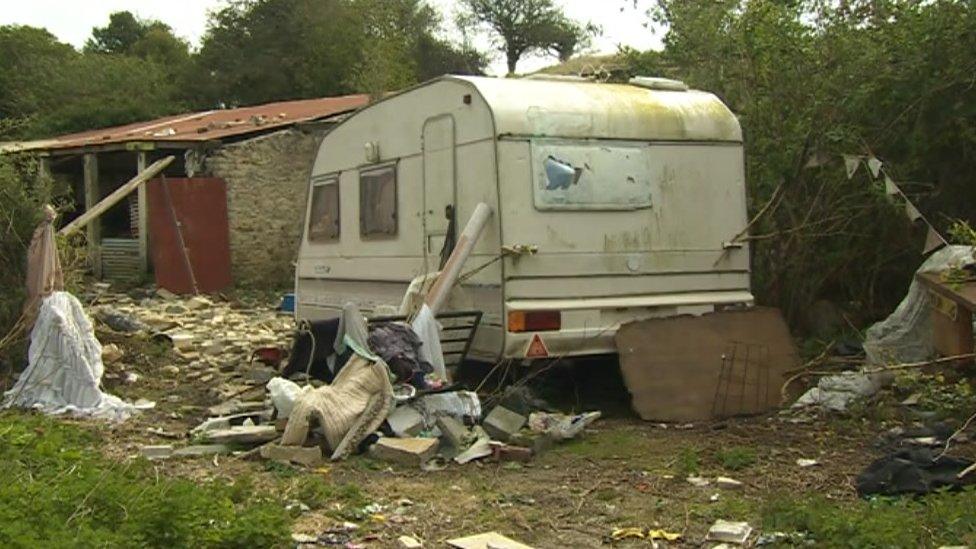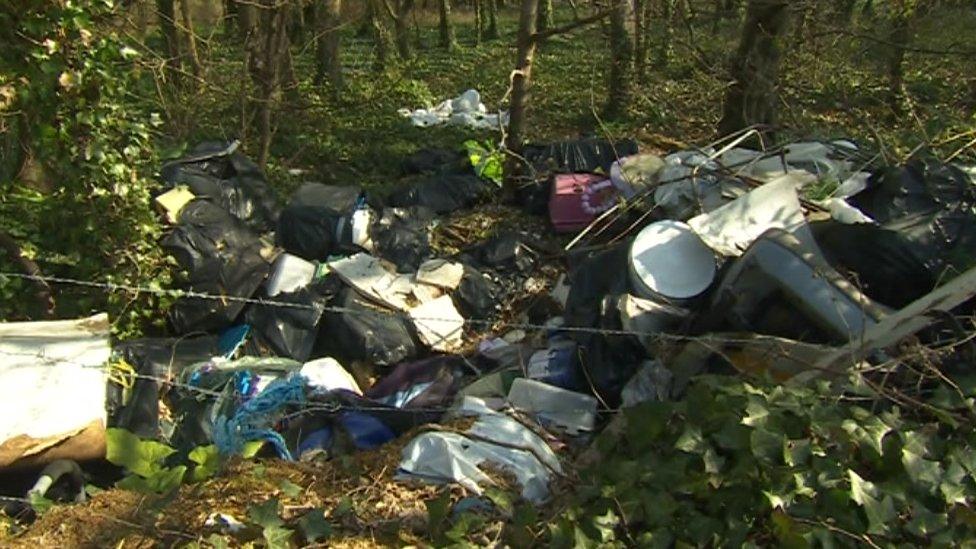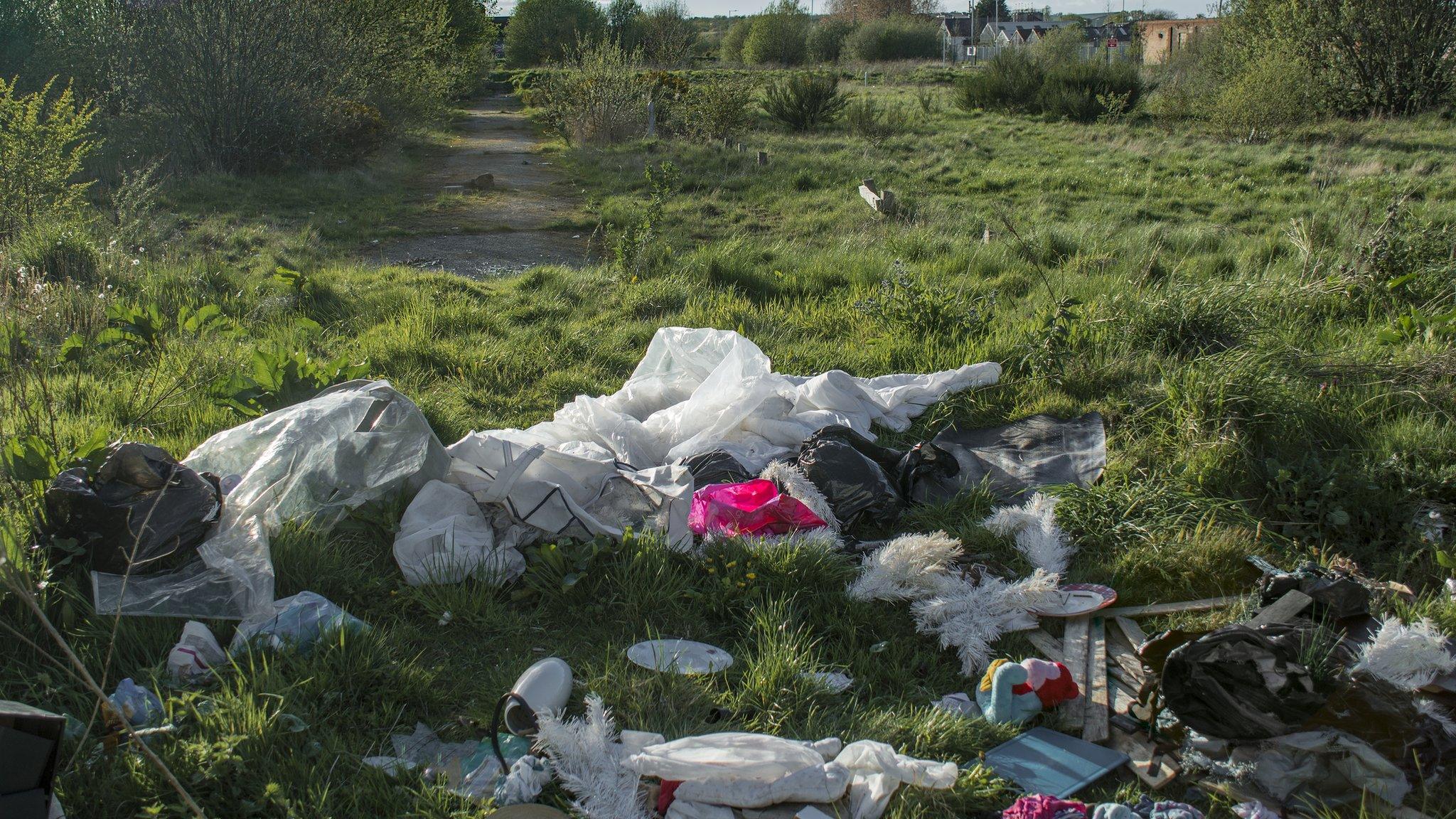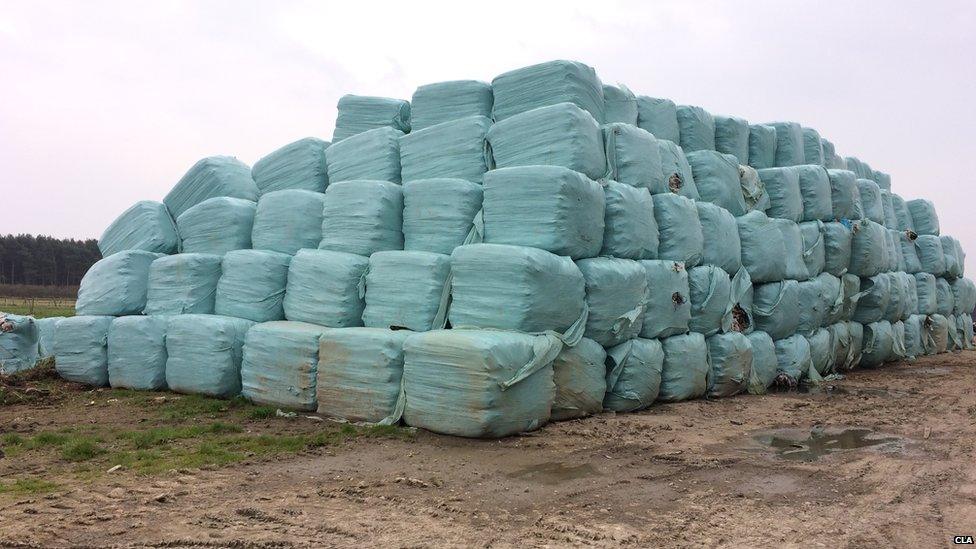Fly-tipping: Dorset Council calls for jail time for worst offenders
- Published

An abandoned caravan is among the items to have been found in Dorset
A council has called for heavier fines for fly-tippers and "potential prison time for the worst offenders".
It comes after Dorset Council received 1,501 reports of fly-tipping from April 2020 to January.
The local authority said the cost of clearing dumped rubbish over the 10-month period was almost £61,000.
Department for Environment, Food and Rural Affairs (Defra) said councils had been given greater powers to tackle the issue.
Councillor Jill Haynes, of Dorset Council, said although punishments of unlimited fines and up to five years in prison were a "sufficient deterrent for most", seasoned fly-tippers were "unlikely to be dissuaded".
"We would also welcome courts imposing heavier fines for fly-tipping and potential prison time for the worst offenders," she added.

More than 1,500 incidents of fly tipping have been reported in Dorset in the past 10 months
Although there were 252 investigations over the 10-month period, just 10 fixed penalties were handed down for fly-tipping, with 47 fines for other environmental crimes.
Between April 2019 to March 2020, Dorset Council recorded 1,870 fly-tipping incidents compared to 1,836 during the 12 months prior.
In the period between April 2020 and February, it said 1,001 vehicles had also been abandoned.
In the past five years, the authority's legal team has made 12 prosecutions.

More than half of all local authorities in England said there had been an increase in the number of large fly-tipping incidents between 2011-12 and 2018-19.
Ms Haynes said a "combination of law changes and consistent public messaging, on a national scale, could really make a difference in changing behaviours".
A spokesman for Defra said councils had been given greater powers to tackle fly-tipping, including the ability to seize vehicles and issue fines.
It said the government "will reform the licensing system for waste carriers" with stricter background checks and also have "mandatory electronic waste tracking" to make it harder for criminals to operate.

Follow BBC South on Facebook, external, Twitter, external, or Instagram, external. Send your story ideas to south.newsonline@bbc.co.uk, external.
Related topics
- Published22 February 2021

- Published1 October 2020

- Published13 February 2020
